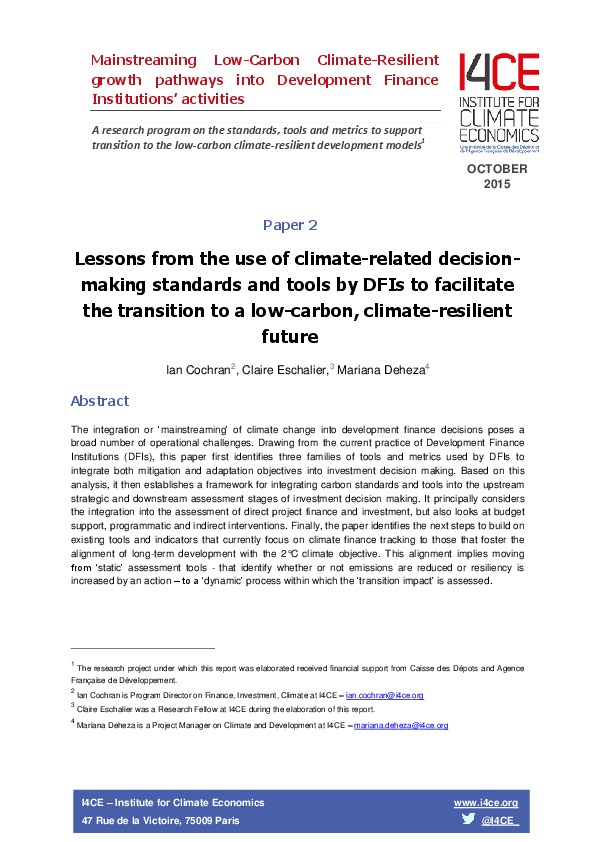Lessons from the use of climate-related decision-making standards and tools by DFIs to facilitate the transition to a low-carbon, climate-resilient future
Paper two in I4CE’s research project on the standards, tools and metrics to support the mainstreaming of ‘Low-Carbon Climate-Resilient’ growth pathways into activites of development finance institutions.
The integration or ‘mainstreaming’ of climate change into development finance decisions poses a broad number of operational challenges. Drawing from the current practice of Development Finance Institutions (DFIs), this paper first identifies three families of tools and metrics used by DFIs to integrate both mitigation and adaptation objectives into investment decision making. Based on this analysis, it then establishes a framework for integrating carbon standards and tools into the upstream strategic and downstream assessment stages of investment decision making. This looks principally on integration into the assessment of direct project finance and investment, but also looks at budget support, programmatic and indirect interventions. Finally, the paper identifies the next steps to build on existing tools and indicators today focusing climate finance tracking to those that foster the alignment of long-term development with the 2°C climate objective. This alignment implies moving from ‘static’ assessment tools – that identify whether or not emissions are reduced or resiliency is increased by an action – to a ‘dynamic’ process within which the ‘transition impact’ is assessed.
The research project under which this paper was elaborated received financial support phase from Caisse des Dépots and Agence Française de Développement during its first phase. The research presented in this publication was carried out by I4CE on an independent basis. CDC group and AFD are not liable under any circumstances for the content of this publication.
